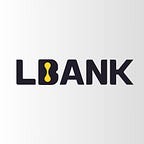Understanding Blockchain Fundraising — Initial Coin Offering (ICO)
Blockchain technology has many use cases in the fundraising world. It is one of the most innovative technologies of recent times, as it provides a decentralised way for projects to raise donations, record transactions and track how donations are spent.
Blockchain fundraising is a new trend in the fundraising world. It is a type of crowdfunding that allows people to donate money to a cause without any middlemen.
While crowdfunding through online platforms such as Kickstarter or Gofundme has exploded in popularity, blockchain’s decentralised nature allows organisations to raise funds from people directly without any middleman taking a percentage or commission.
What is Initial Coin Offering (ICO)
An Initial Coin Offering (ICO) is a type of crowdfunding that has emerged as an alternate way to raise money for start-ups. The term ICO refers to the process of releasing newly created cryptocurrencies, tokens, or other digital assets.
An ICO may be used by startups to bypass rigorous and regulated capital-raising processes required by venture capitalists or banks. It can also be seen as a way for organisations to avoid the rigorous and regulated capital-raising process required by venture capitalists or banks.
An initial Coin Offering (ICO) is similar to an IPO (Initial Public Offering) which raises funds when a new company ventures into the stock market.
Types of Token Fundraising
There are several ways people categorise the types of token fundraising. One of the easiest ways to understand crypto fundraising is to break it into Private Placements and Public Offerings.
Private Placement: Before launching a public offering, a project owner may decide to conduct a Private Placement in which tokens are offered to a select group of investors. This is called a “token presale,” which occurs when a startup or project sells tokens while the project is still in development. The token presale’s goal is to either raise funds for the project’s early development or business growth accretion leading up to the Initial Coin Offering (ICO) launch.
Public Offerings: There have been three main types of public offerings. It includes Initial Coin Offering (ICO), Initial Exchange Offering (IEO) and Initial Decentralised Exchange Offering (IDO).
FAQs About Initial Coin Offering (ICO)
What Happens If the Initial Coin Offering (ICO) Fails? If the ICO fails to raise enough funds, the new cryptocurrency is usually not created (or completed) at all, and backers receive their money back.
What is the largest initial coin offering (ICO)? Ethereum’s initial coin offering (ICO) in 2014 had to be the most successful ICO of all time, at least to date. Over 42 days, the Ethereum ICO raised $18 million.
What Makes an ICO Successful? A company holding an ICO, similar to an initial public offering, should clearly state the maximum coin supply, as well as the number of tokens allocated to founders, early investors, partners, and the company itself.
Conclusion
Finding funding to launch new ventures has long been a challenge for entrepreneurs, even those with great business ideas because the traditional fundraising process requires significantly more effort, time, and money.
Blockchain technology, on the other hand, provides an alternative fundraising method that is best suited for blockchain-related projects.
Disclaimer: The opinions expressed in this blog are solely those of the writer and not of this platform.
